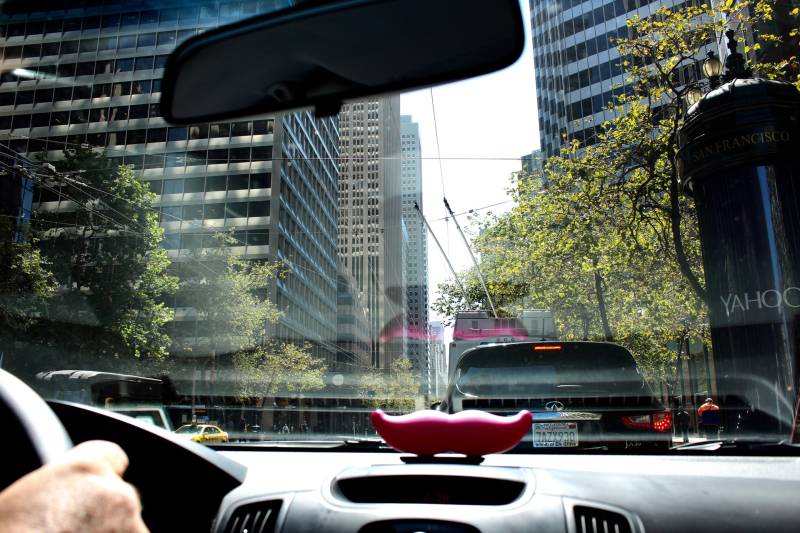He said the Legislature has determined "that an individual fare is an individual fare and we cannot go with this approach."
But CPUC President Michael Picker said while the regulation may need further legal analysis, the commission needed to adopt a policy even though "we're left not completely sure."
Uber and Lyft report that more than half of their rides in San Francisco are for their carpooling services. Regulators are requiring ride service companies to report within 60 days on how the services are affecting traffic injuries and impacting the environment.
At Commissioner Carla Peterman's request, the CPUC voted to continue studying the issue of whether Uber and Lyft drivers should be allowed to lease vehicles, and for how long. At question is the definition of a personal vehicle.
Under the proposal, drivers would have been able to lease vehicles, but only for periods longer than four months. Commissioner Liane Randolph explained that the proposal was meant, in part, to ensure proper vehicle inspections and that drivers' vehicles met all regulations.
Though Uber officials said the regulation wouldn't affect its long-term leasing program, XChange, it would have barred the company's short-term rentals through Enterprise Rent-A-Car. The rule would also have blocked Lyft's two short-term leasing programs, with General Motors and Evercar.
Some drivers testified at the meeting Thursday that the short-term rentals have been crucial at times when they weren't able to use their own vehicles or couldn't afford one.
Peterman said the CPUC received "thousands of emails" about the regulation -- many of them "robo emails," she said -- but also hundreds of personal emails that were "almost evenly split" on whether to change the definition of personal vehicles to allow leased vehicles. Uber sent an email to drivers encouraging them to send messages opposing the regulation.
Even though the companies have tried to assure regulators that leased vehicles would be properly inspected and meet regulations, Peterman said: "I don't feel that we have the assurances that that is true for everyone, nor necessarily the guidance to be clear about what the best practice is."
The commission plans to study the issue some more and make a decision in its next round of regulations. Both Uber and Lyft officials were pleased with the postponement.
"These programs help people quickly and easily become a rideshare driver as a flexible way to make ends meet, and also help the state meet its environmental goals," said Lyft spokeswoman Chelsea Wilson. "We look forward to continuing to work with the commission to ensure that modern transportation options like ridesharing can grow across the state."
CPUC officials also plan to consider in the next phase of regulations whether to require fingerprint background checks for drivers. Commissioner Liane Randolph recently declined a request from Los Angeles officials to do a pilot fingerprint background check for ride service drivers operating in the city.
On Thursday, L.A. City Councilman Paul Krekorian sent a letter to the commission urging it to act quickly on the issue and reconsider the city's proposal.
"No doubt, the commission will face tremendous pressure to omit fingerprint-based background checks again, or to further delay action on this important passenger and public safety concern," he wrote. "Any such delay will only serve to increase the known risk to the public."
Both Uber and Lyft oppose fingerprint background checks and say their own checks are sufficient to screen drivers.
